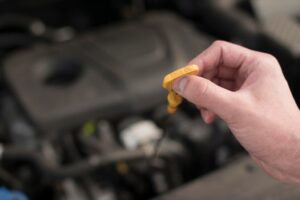Mechanic gloves are essential for anyone working with tools, machinery, or vehicles. They protect hands from cuts, burns, chemicals, and even provide extra grip for precision tasks.
From professional mechanics to DIY enthusiasts, wearing the right gloves can make a big difference in safety and performance.
This article explores the different types of mechanic gloves, their uses, materials, and why they’re essential.
Why Mechanic Gloves Are Important?
Mechanic gloves protect hands from potential hazards, such as sharp edges, hot surfaces, and chemicals often encountered in automotive work. Without gloves, mechanics risk cuts, bruises, and exposure to harmful chemicals.
The right gloves also improve grip, allowing for better control over tools and parts. This not only enhances safety but also ensures efficiency, letting mechanics work with confidence and precision.
Types of Mechanic Gloves
Mechanic gloves come in a variety of styles to meet specific needs. Here are some popular types:
Nitrile Gloves
Nitrile gloves are popular for mechanics who need protection from chemicals. They resist oils, greases, and solvents, making them ideal for automotive tasks. Nitrile is also more puncture-resistant than latex, providing better durability in demanding environments.
Impact-Resistant Gloves
These gloves are designed with extra padding and reinforced knuckles to protect against impact injuries. For mechanics working in heavy-duty environments, impact-resistant gloves are a solid choice, offering both hand protection and flexibility for handling tools.
Cut-Resistant Gloves
Cut-resistant gloves are essential for tasks involving sharp objects or materials. They are often made from durable materials like Kevlar, which prevents punctures and cuts. Mechanics handling sharp tools or working with metal parts benefit significantly from cut-resistant gloves.
Heat-Resistant Gloves
Heat-resistant gloves are necessary for tasks that involve exposure to hot surfaces or tools. These gloves often have insulation that shields hands from heat, making them ideal for welding or handling engine parts that may get hot during operation.
Disposable Gloves
For quick jobs where minimal protection is needed, disposable gloves are convenient. They are lightweight and offer limited protection, but they’re great for tasks where the gloves need to be changed frequently, such as handling oils and light cleaning.
Anti-Vibration Gloves
Anti-vibration gloves are designed to reduce the impact of power tools that produce intense vibrations. These gloves have gel padding in the palms and fingers, which absorbs vibrations from drills, grinders, and other heavy machinery, reducing strain on the hands and wrists.
Waterproof Mechanic Gloves
Waterproof gloves are ideal for outdoor or wet environments, where exposure to water, oils, or other liquids is common. They use materials like latex, PVC, or nitrile coatings that repel moisture while still providing flexibility for dexterous tasks.
Touchscreen-Compatible Mechanic Gloves
Many modern mechanic gloves now include touchscreen-compatible fingertips, allowing mechanics to use smartphones or tablets without taking off their gloves. This feature is convenient for checking manuals, orders, or diagnostic tools on digital devices.
Dexterity Gloves
Dexterity gloves are ultra-thin yet durable, allowing high sensitivity and finger mobility. These gloves are great for mechanics working on detailed tasks where precision is critical, such as handling small parts or making intricate repairs.
Insulated Cold-Weather Mechanic Gloves
Insulated gloves are designed to protect hands in colder environments, offering thermal insulation to keep hands warm. Mechanics working in cold outdoor areas or unheated garages find these gloves helpful for comfort and protection.
Chemical-Resistant Mechanic Gloves
Chemical-resistant gloves are essential for mechanics handling toxic or corrosive substances. Made from materials like butyl rubber or neoprene, these gloves provide solid resistance to acids, solvents, and other harsh chemicals.
Leather-Palm Mechanic Gloves
Leather-palm gloves combine a soft, comfortable fit with the strength of leather in the palms. These gloves are perfect for mechanics who need durability for handling heavy parts or tools while retaining comfort and breathability on the back of the hand.
Mechanic Gloves with Wrist Support
Some gloves come with built-in wrist support to prevent strain during repetitive tasks or heavy lifting. Mechanics who perform tasks requiring constant gripping and lifting benefit from the extra stability and reduced risk of wrist injuries.
Materials Used in Mechanic Gloves
Mechanic gloves are made from various materials, each suited to different tasks:
- Leather: Known for its durability, leather is a common material in gloves used for heavy-duty work. It provides great grip, puncture resistance, and some heat protection.
- Nitrile: Nitrile is widely used in disposable gloves but is also popular for reusable gloves. It provides excellent chemical resistance and is durable against punctures.
- Neoprene: Neoprene gloves are flexible and resistant to chemicals, making them a good choice for mechanics dealing with harsh substances.
- Kevlar: Kevlar gloves are cut-resistant and ideal for tasks involving sharp tools or materials. They are commonly found in gloves meant for safety in high-risk jobs.
Key Features to Consider
When choosing mechanic gloves, certain features make a big difference in performance and safety:
- Grip: Gloves with a good grip prevent slippage, allowing mechanics to handle tools securely.
- Flexibility: Mechanics need gloves that allow them to move their fingers freely, as restricted movement can hinder work.
- Durability: High-quality mechanic gloves should last through demanding jobs without tearing or wearing down.
- Comfort: Comfortable gloves make it easier for mechanics to work for long periods without discomfort or hand strain.
Benefits of Using Mechanic Gloves
- Enhanced Safety: Mechanic gloves protect against cuts, burns, and harmful chemicals, reducing the risk of injury.
- Better Grip: Gloves improve grip, which is essential when working with greasy or oily parts.
- Increased Comfort: Quality gloves with good padding reduce hand fatigue, making it easier to work for extended periods.
- Protection from Contaminants: Gloves prevent oils, dirt, and grime from contacting the skin, keeping hands clean and protected.
How to Choose the Right Mechanic Gloves?
When selecting mechanic gloves, consider the tasks you’ll be performing. For those working with chemicals, nitrile or neoprene gloves are best. If your work involves handling heavy or sharp tools, cut-resistant gloves made with Kevlar are ideal.
For heavy-duty automotive tasks, impact-resistant gloves with reinforced padding provide added safety. Look for a snug fit, as loose gloves can impair your grip and control.
Maintenance Tips for Mechanic Gloves
To ensure the longevity of your gloves, regular maintenance is essential:
- Clean After Each Use: Some gloves, like nitrile or disposable ones, can simply be discarded, but reusable gloves should be cleaned with warm water and mild soap.
- Air Dry: Avoid using a dryer, as high heat can damage the materials.
- Inspect for Damage: Before each use, check for wear, tears, or punctures, as these can compromise protection.
- Store Properly: Keep gloves in a dry, cool place to prevent degradation.
Top Brands of Mechanic Gloves
Several brands are known for their high-quality mechanic gloves:
- Mechanix Wear: Known for durable gloves that offer great protection and flexibility, especially popular among automotive and construction workers.
- Ironclad: This brand produces heavy-duty gloves designed for high-impact jobs, with features like reinforced knuckles and excellent grip.
- Grease Monkey: Affordable and dependable, Grease Monkey gloves are ideal for light-to-moderate automotive tasks and general use.
- Ansell: Known for cut-resistant and chemical-resistant gloves, Ansell is a reliable brand for mechanics working in hazardous environments.
Frequently Asked Questions
1. Can mechanic gloves be washed?
Yes, most reusable mechanic gloves can be washed with mild soap and water. Disposable gloves, however, are meant for one-time use and should be discarded after each job.
2. Are mechanic gloves waterproof?
Not all mechanic gloves are waterproof. However, nitrile and neoprene gloves offer good resistance to water and chemicals, making them suitable for tasks involving liquids.
3. How often should I replace my mechanic gloves?
Replace gloves when they show signs of wear, such as tears, thinning, or loss of grip. For disposable gloves, a fresh pair is recommended for each new task.
Which gloves are best for mechanics?
The best gloves for mechanics are nitrile gloves for chemical resistance, impact-resistant gloves for heavy-duty tasks, and cut-resistant gloves for handling sharp objects. Mechanix Wear and Ironclad are top brands known for durability and comfort in mechanic gloves.
What are mechanical gloves used for?
Mechanical gloves protect hands from cuts, burns, and chemicals while working with tools, machinery, or vehicles. They improve grip, reduce hand fatigue, and enhance safety during automotive repairs, construction, and heavy-duty tasks.
Conclusion
Mechanic gloves are vital for anyone working with machinery, offering protection, comfort, and improved efficiency. Choosing the right pair depends on your needs, from chemical resistance to cut protection. By understanding the types, materials, and brands, you can find gloves that meet your specific requirements and keep your hands safe.











